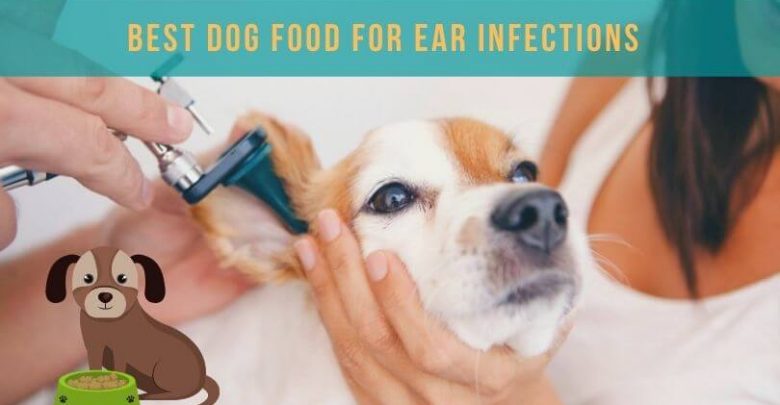
Dog Food for Ear Infections: A Comprehensive Guide to Nutrition and Canine Ear Health
Ear infections are a common problem for dogs, causing discomfort and potentially leading to more serious health issues. While veterinary treatment is crucial for addressing an active infection, the role of nutrition in supporting canine ear health and preventing future infections is often overlooked. This comprehensive guide explores the connection between dog food and ear infections, examining the ingredients to look for and avoid, and offering advice on choosing the best diet for your furry friend’s ear health.
Understanding Canine Ear Infections
Canine ear infections, or otitis externa, can stem from various causes, including allergies, bacterial or yeast overgrowth, mites, foreign bodies, and underlying conditions like autoimmune diseases. Symptoms can range from mild itching and head shaking to intense pain, redness, swelling, and discharge. The type of infection and underlying cause will influence the treatment approach.
Types of Ear Infections
Ear infections in dogs can be categorized into several types:
- Bacterial Otitis Externa: Caused by bacterial overgrowth, often following a disruption to the normal ear flora.
- Yeast Otitis Externa: Caused by yeast overgrowth, frequently seen in dogs with allergies or compromised immune systems.
- Otitis Media: An infection that extends from the outer ear to the middle ear, potentially affecting hearing.
- Otitis Interna: A severe infection affecting the inner ear, leading to balance problems and neurological symptoms.
Proper diagnosis by a veterinarian is essential to determine the type of infection and prescribe appropriate treatment, which may include ear cleaning solutions, antibiotics, antifungals, or anti-inflammatory medications.
The Role of Nutrition in Canine Ear Health
While medication tackles the active infection, nutrition plays a vital role in supporting the healing process and preventing future occurrences. A balanced diet can contribute to a healthy immune system, reduce inflammation, and maintain the integrity of the skin and coat – all factors that impact ear health.
Essential Nutrients for Ear Health
Several key nutrients are crucial for supporting canine ear health:
- Omega-3 Fatty Acids: Found in fatty fish like salmon and flaxseed oil, omega-3s possess anti-inflammatory properties that can help reduce inflammation in the ear canal.
- Omega-6 Fatty Acids: While often associated with inflammation, omega-6 fatty acids are also important in maintaining skin and coat health. A balanced ratio of omega-3 to omega-6 is key.
- Antioxidants: Vitamins A, C, and E, along with other antioxidants, help protect cells from damage and support immune function.
- Zinc: Essential for skin and coat health, zinc plays a vital role in maintaining the integrity of the skin barrier, helping to prevent infections.
- Biotin: This B vitamin is crucial for healthy skin and coat, contributing to a strong barrier against pathogens.
Ingredients to Look for in Dog Food for Ear Health
When choosing dog food to support ear health, look for the following ingredients:
- High-quality protein sources: Chicken, fish, lamb, or beef provide essential amino acids for building and repairing tissues.
- Healthy fats: Sources like salmon oil, flaxseed oil, or chicken fat provide omega-3 and omega-6 fatty acids.
- Fruits and vegetables: Rich in antioxidants and vitamins, these ingredients support immune function and overall health.
- Prebiotics and probiotics: These promote gut health, which is closely linked to immune function.
Ingredients to Avoid
Certain ingredients can exacerbate ear infections or contribute to allergic reactions:
- Artificial colors, flavors, and preservatives: These can irritate sensitive skin and potentially trigger allergic reactions.
- Fillers like corn, wheat, and soy: These offer little nutritional value and can trigger allergies in some dogs.
- By-products: These are low-quality ingredients that may contain harmful substances.
Choosing the Right Dog Food
Selecting the appropriate dog food for a dog with ear infections requires careful consideration of several factors:
- Age and breed: Different life stages and breeds have unique nutritional needs.
- Underlying health conditions: Allergies, sensitivities, or other health issues may necessitate specific dietary adjustments.
- Food type: Dry kibble, wet food, or raw food each have advantages and disadvantages.
- Ingredient quality: Always opt for high-quality ingredients with clear labeling.
- Veterinarian recommendations: Consult your veterinarian to determine the best food for your dog’s specific needs.
Beyond Diet: Holistic Approaches to Ear Health
While diet is an essential component, a holistic approach to ear health includes other important aspects:
- Regular ear cleaning: Gentle ear cleaning helps prevent the buildup of debris and moisture that can promote infections.
- Veterinary check-ups: Regular check-ups allow early detection and treatment of potential problems.
- Allergy management: Addressing underlying allergies can significantly reduce the risk of ear infections.
- Environmental control: Minimizing exposure to irritants such as dust, pollen, and chemicals can help prevent ear infections.
Conclusion
Ear infections in dogs can be painful and debilitating, but with proper veterinary care and a focus on nutrition, you can significantly improve your dog’s ear health and prevent future problems. Choosing a high-quality dog food rich in essential nutrients, avoiding allergenic ingredients, and incorporating a holistic approach to ear care will contribute to a healthier, happier pup.
Remember, this information is for educational purposes only and should not be considered a substitute for professional veterinary advice. Always consult your veterinarian before making any significant changes to your dog’s diet or treatment plan.